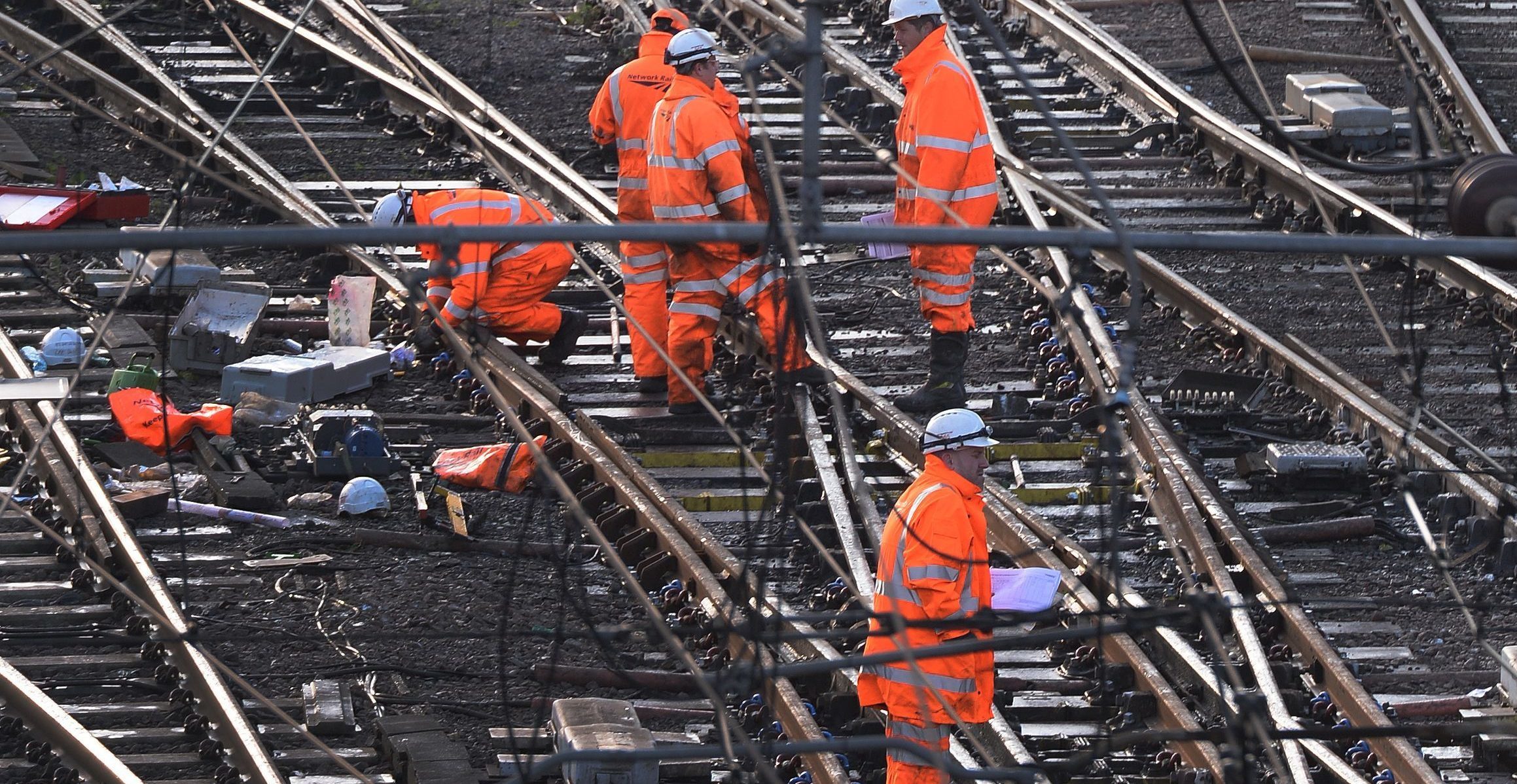
AN £800 million scheme to cut 10 minutes off the train trip between Edinburgh and Glasgow has been delayed by a year.
Network Rail has revealed its work to deliver a 42-minute journey on Scotland’s busiest railway line will not be finished by the target of December 2018.
The first electric trains on the Edinburgh and Glasgow route were expected to come into operation later this year but slashing the 52-minute journey time is dependent on delayed engineering works along the line.
Instead, Network Rail has said journey time improvements will be “incremental” and a report from rail regulators states the 42-minute journey will come some time after March 2019.
Transport Scotland last night insisted it expects the journey time savings to be delivered by December next year.
But an industry source told The Sunday Post this is wholly unrealistic and December 2019 is far more likely.
This will be just before Glasgow’s revamped Queen Street Station opens – two years later than planned due to legislative wrangling.
Transport Scotland said it is still waiting for contractors to give an updated cost for the project but industry watchdogs revealed there were £60m of higher costs across the project and other electrification works last year.
Scottish Labour transport spokesman Neil Bibby MSP said: “This is deeply disappointing news for tens of thousands of passengers. Commuters have put up with months of delays and disruption as part of this vital project to electrify the busiest route in Scotland.
“We are lagging far behind other parts of the UK and the Continent, and missing the 2018 forecast would be a huge setback.”
The annual report on Scotland by industry watchdog the Office of Rail and Road (ORR) states that the delivery of a 42-minute journey time, with eight-car services, between Edinburgh and Glasgow, and an upgrade to Queen Street Station, is “at significant risk”.
The reduced journey times was meant to be in place by December 2018 and Queen Street was originally meant to be finished by March 2019.
However, the ORR report states Network Rail is forecasting both projects will miss these targets.
The ORR said the Queen Street delay was due to an extra nine months being put on to the timescales while waiting for compulsory purchase powers to buy land around the Glasgow station.
Regulators said this was outside of Network Rail’s control and added the publicly-owned firm was now working with Transport Scotland to try to find ways to mitigate the delays.
The ORR report says there were higher costs of £60m across the whole programme and other electrification works last year.
The Edinburgh Glasgow Improvement Programme (EGIP) project has been besieged by delays and inconvenience for passengers and the cost is thought to stand at £795m – a 22% hike in just three years.
Last year, The Sunday Post revealed how some of the route’s overhead wires and railway bridges were too low to meet safety standards and engineers were sent back to the drawing board.
Minutes of project meetings showed how the people running the EGIP project described it as “flawed by internal animosity”.
The minutes show Network Rail, which is in ultimate charge of the project, told ScotRail and Transport Scotland that an alliance of contractors to revamp the line had been “unsuccessful”.
Efforts to remedy the situation are described as coming after “the horse has bolted” – an argument supported by the scheme’s spiralling costs. SNP ministers had originally said EGIP would be completed by 2017.
The then-transport minister Keith Brown told MSPs in June 2011: “Our priority projects remain the Forth Replacement Crossing, the Edinburgh Glasgow Improvement Programme, the Highland main line and the Aberdeen to Inverness line.
“We expect to deliver these projects by 2017.”
The original EGIP plan was scaled back and a new estimate of £742m put on the scheme, with the first services expected to come on to the route in 2016.
This was later put back to July 2017 and another delay, this time to October, was announced last month when it emerged 300 components that attach the electrical wires to the structure had begun to fail.
Quizzed on the delays by MSPs last month, Mark Carne, chief executive of Network Rail, said it was on schedule but he could not give a “cast-iron guarantee” that full electric services on the Glasgow and Edinburgh line will start in December as promised.
As well as a 20-week closure of the Queen Street tunnel in Glasgow last year, engineering works have meant trains not running as late into the night as usual or curtailed services at the weekends.
A ScotRail Alliance spokesman said: “The programme has been rescheduled due to the length of time for the Transport and Works Scotland process (which allows big projects to go ahead without the need for a Holyrood Bill) to conclude.
“Our new electric trains will begin operating between Edinburgh and Glasgow by December.
“Journey time improvements will be incremental with the (Queen Street) station redevelopment to be complete by March 2020.”

Enjoy the convenience of having The Sunday Post delivered as a digital ePaper straight to your smartphone, tablet or computer.
Subscribe for only £5.49 a month and enjoy all the benefits of the printed paper as a digital replica.
Subscribe